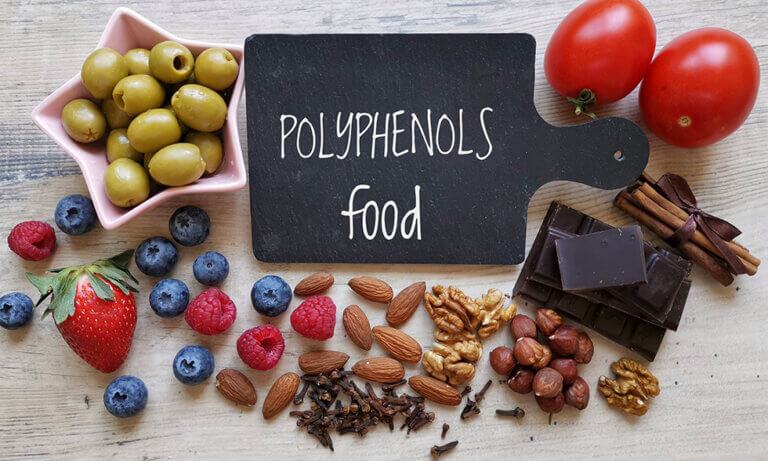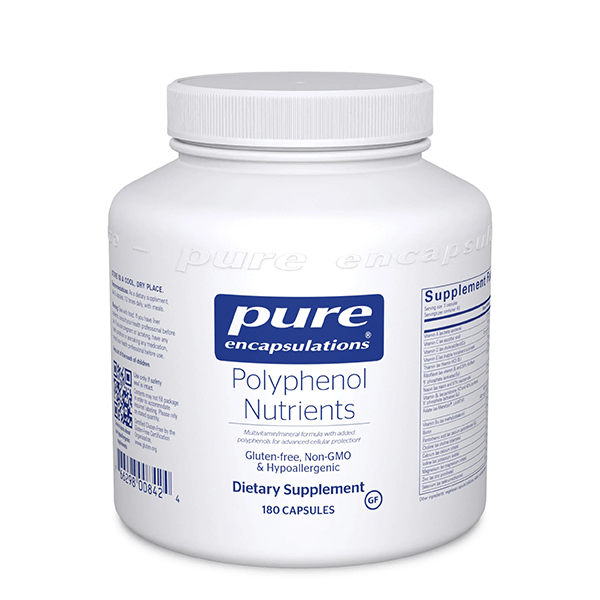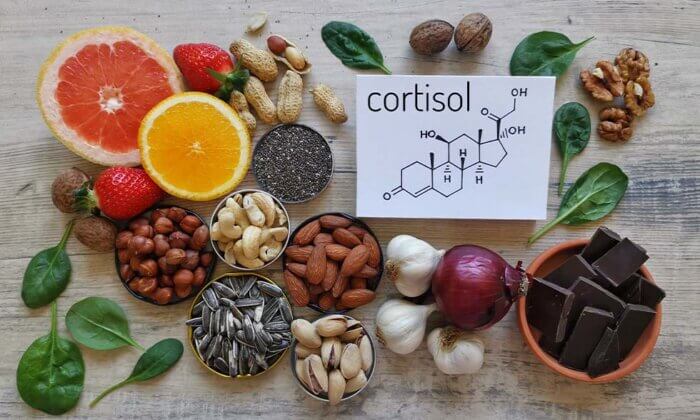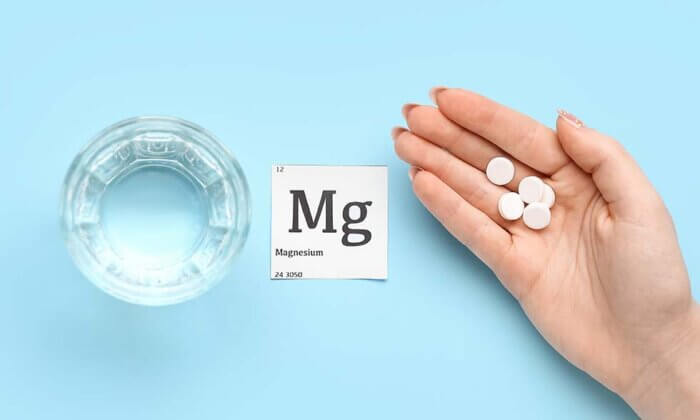The Importance of Including Polyphenols in Your Daily Diet
| | Reading Time: 4 minutes

Bright-colored plants make up this family of phytonutrients. They make these colorful biochemicals to protect them against UV radiation from sunlight, as well as against pathogens and predators. Plants need strong antioxidant protection because of their daily direct exposure to the sun. They cannot stay inside like people or in a den-like animals. So, they manufacture protectant antioxidant biochemicals, including polyphenols. It’s the polyphenols that give plants their rich colors.
Researchers established an extensive field in polyphenol science; Pubmed lists 7,141 articles about polyphenols, the aromatic compounds found in plants that have antioxidant properties and can benefit animal and human health. In addition to their antioxidant properties, polyphenols protect against insect and microbial damage, have anti-inflammatory activity, and guard against chronic disease. They protect against developing cancer, cardiovascular disease, and neurodegenerative conditions. Scientists view polyphenols as essential functional foods, like vitamins and minerals, in our diet.
They also have an essential relationship with the gut microbiome. Once in the gut, polyphenols undergo biochemical modification due to interaction with gut microbiota. This process contributes to a gut microenvironment that is favorable to health while inhibiting health-threatening factors. Polyphenols drive gut microecological health by increasing the abundance of beneficial bacteria like Akkermansia muciniphila, a gut microbiome marker of health.
Cultures With a High Polyphenol Diet Live Longer and Healthier
One of my areas of research interest is the health and longevity of traditional peoples. For example, on average, Sardinia and other Mediterranean islands like Corsica live three and a half years longer than those in European countries. Researchers attribute this to lifestyle and a polyphenol-rich diet, especially daily consumption of wine made from grapes.
China has a rich tradition of longevity methods, including slow-moving exercises like taiji and tea drinking. Tea is more consumed than plain water. Unsurprisingly, polyphenols such as catechins, including epigallocatechin-3-gallate (EGCG), are the primary active compounds in tea.
Polyphenols Have Strong Disease Preventative Properties
In addition, polyphenols can help you live longer by preventing many of the age-related diseases of modern lifestyle, including cardiovascular disease, cancer, and neurodegenerative disorders. They slow the progression of chronic diseases. They counter chronic inflammation and delay atherosclerosis.
How To Get More Polyphenols in Your Diet
It’s well-established scientifically that polyphenols are good for your health. However, the standard American diet high in ultra-processed foods is the antithesis of a healthy diet. The first step, and one I write about often, is to eliminate all ultra-processed foods. Then, build a new, more nutritious diet from the ground up.
Eat lots more green vegetables like spinach and kale. Incorporate whole grains like brown rice and whole wheat bread into your meals. Include some fruits such as apples and berries, and eat more raw nuts like almonds and walnuts. Additionally, make sure to include high polyphenol-rich foods in your daily diet. For instance, drink tea every day. Three to five cups of tea daily provide a minimum of 250 mg of catechins, a type of polyphenol.
10 Top Polyphenol Foods
- Spices and herbs – cloves, star anise, and peppermint.
- Cocoa powder and dark chocolate
- Berries including blueberries, blackberries, strawberries, and red raspberries
- Fruits, including apples, cherries, plums, and black currents
- Dried beans, like black beans
- Nuts including hazelnuts, walnuts, almonds, and pecans
- Vegetables, mainly red onions, spinach, and artichokes
- Soy products like tempeh and tofu
- Black and green tea
- Red wine
Recommendations for Optimal Dietary Polyphenols
Eat a plant-based diet with high levels of green leafy vegetables and polyphenol-rich foods like berries and nuts. Walnuts are exceptionally high in polyphenols. Try to get most of your polyphenols from foods. To optimize your daily polyphenol intake, add a polyphenol nutritional supplement.
Boost your polyphenol intake with specialized supplements if needed. While it’s best to get most of your polyphenols from a plant-based diet, some individuals may find it challenging to consume enough polyphenol-rich foods. In such cases, a polyphenol-rich multivitamin and mineral supplement can be a convenient way to ensure you’re meeting your daily polyphenol needs. My choice is Polyphenol Nutrients from Pure Encapsulations. The recommended daily dose of 3 capsules provides 225 mg of polyphenols plus your daily dose of vitamins and minerals.

Polyphenols are not a magic bullet. So, loading up on blueberries every morning isn’t a special formula for living healthier longer. But it’s a start. Ensuring you eat an abundance of foods rich in polyphenols is one of the essential practices of a diet that supports lifelong health.
Selected References
Bié, J., Sepodes, B., Fernandes, P. C. B., & Ribeiro, M. H. L. (2023). Polyphenols in Health and Disease: Gut Microbiota, Bioaccessibility, and Bioavailability. Compounds, 3(1), 40-72. https://doi.org/10.3390/compounds3010005
Khan N, Mukhtar H. Tea Polyphenols in Promotion of Human Health. Nutrients. 2018 Dec 25;11(1):39. PMID: 30585192; PMCID: PMC6356332. https://doi:10.3390/nu11010039
Rana A, Samtiya M, Dhewa T, Mishra V, Aluko RE. Health benefits of polyphenols: A concise review. J Food Biochem. 2022 Oct;46(10):e14264. https://doi:10.1111/jfbc. 14264. Epub 2022 Jun 13. PMID: 35694805.
Rodríguez-Daza MC, de Vos WM. Polyphenols as Drivers of a Homeostatic Gut Microecology and Immuno-Metabolic Traits of Akkermansia muciniphila: From Mouse to Man. Int J Mol Sci. 2022 Dec 20;24(1):45. https://doi:10.3390/ijms24010045. PMID: 36613488; PMCID: PMC9820369.
Scherr J, Nieman DC, Schuster T, Habermann J, Rank M, Braun S, Pressler A, Wolfarth B, Halle M. Nonalcoholic beer reduces inflammation and incidence of respiratory tract illness. Med Sci Sports Exerc. 2012 Jan;44(1):18-26. https://doi:10.1249/MSS.0b013e3182250dda. PMID: 21659904.
Zekrumah, M., Begua, P., Razak, A., Wahab, J., Moffo, N., Ivane, A., Oman, M., Elrashied, H., Zou, X., & Zhang, D. (2023). Role of dietary polyphenols in non-communicable chronic disease prevention, and interactions in food systems: An overview. Nutrition, 112, 112034. https://doi.org/10.1016/j.nut.2023.112034


